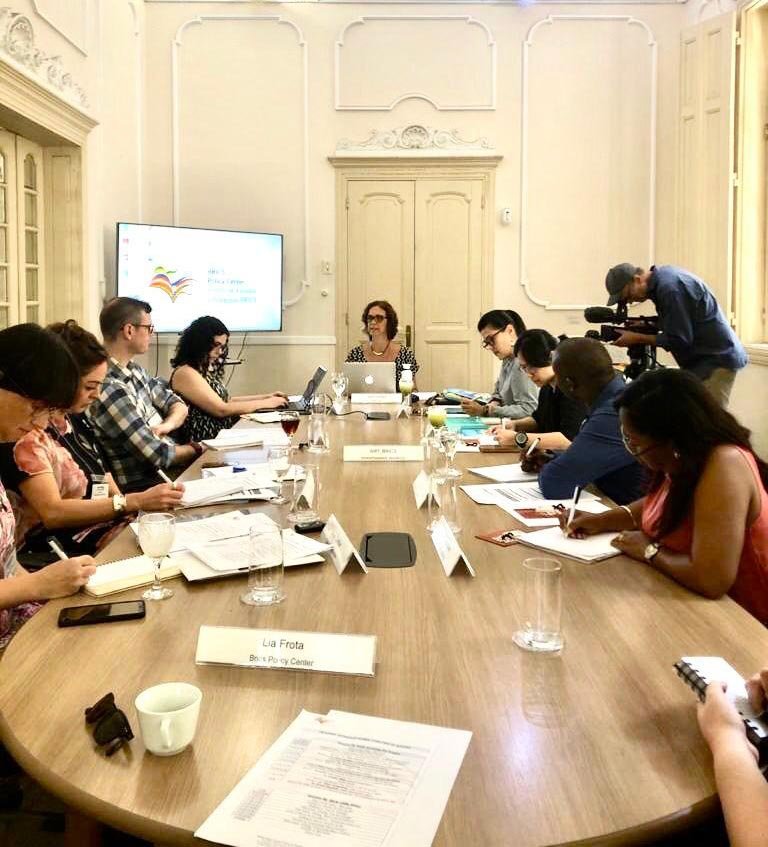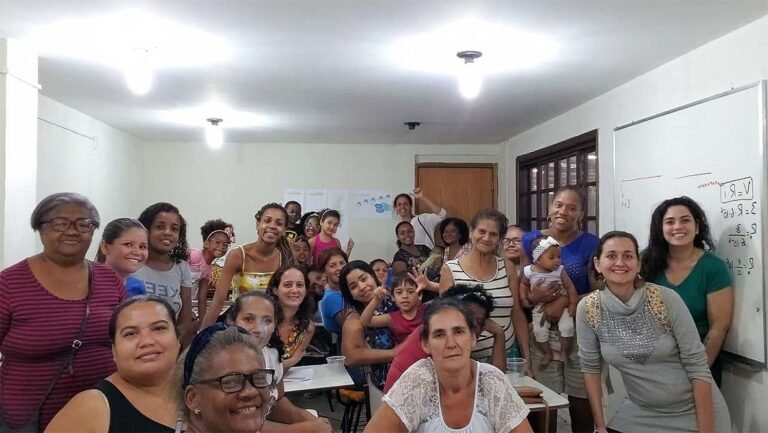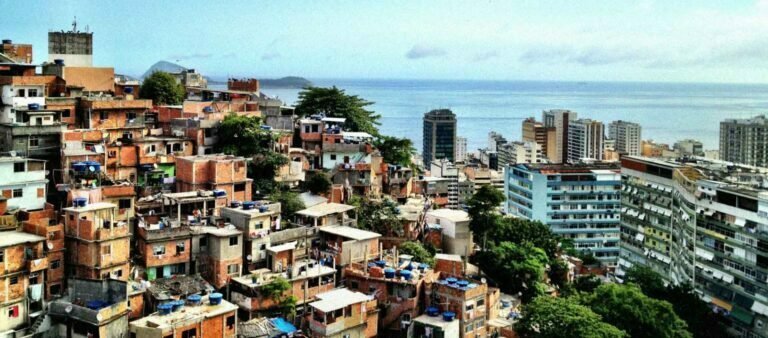It is likely that you purchased meat from Brazilian ranchers or slaughterhouses accused of modern slavery and deforestation. Brazil is the second largest producer of beef in the world, and one of the biggest suppliers to the United States, China, and the United Kingdom. Estimates suggest that over 50% of beef produced originates from industries funded by Brazilian capital. In 2009, the Brazilian Amazon’s meat supply chain exported 40% of the processed meat bought in the United Kingdom, and 90% of that meat came from slaughterhouses involved in deforestation (Greenpeace 2009). Furthermore, investigations into the Brazilian meat supply chain show that there is a strong connection between forced servitude and environmental degradation. The global food supply chain, historically and currently, heavily relies on forced labor.
In the Brazilian case, once meat produced by modern slavery in Brazil mixes with sustainabe meat it can no longer be differentiated. For instance, reports show that British supermarket chains purchased “dirty meat” from one of the biggest slaughterhouses in Brazil that was accused of modern slavery and deforestation, and while tracking the production chain, was unable to differentiate the purchased meat’s suppliers, therefore incapable of telling whether the meat was produced by modern slaves or under human rights guidelines (Dantas 2011; Barros 2012).
To confront these issues, the Office of Federal Prosecution (MPF) in Pará, Brazil created the Carne Legal (in English, Legal Beef) programme. It is a green criminology investigation used to bring awareness and decrease the harm afflicting the Amazon and its meat supply workers. Carne Legal investigated each part of the meat supply chain in the Amazon, which provided the necessary evidence for federal prosecutions against ranchers, slaughterhouses, and supermarkets. Yet, regardless of the resulting pledges or settlements, Brazilian agribusiness continues to flaunt environmental and forced labor laws.
Did Carne Legal reduce environmental crimes?
Figure 1. Deforestation rates in the Amazon (2005-2014), divided by each State where the programme is functioning. Source: Deforestation and Modern Slavery in Brazil: Criminological Perspectives on the Carne Legal Programme, 2016.

From 2005-2014, Brazil’s deforestation levels decreased while cattle production levels increased. This trend demonstrates the Brazilian agribusiness actors’ shifted perception towards violating environmental law. Carne Legal exposed agribusiness to a greater level of societal pressure, which increased the costs of violating environmental laws. Consequently, agribusiness actors’ evaluation of costs kept them from further deforestation when pursing additional cattle ranching. The trend reveals agribusiness actors’ calculation and recognition of worker’s increased visibility and capacity to be reached.
Figure 2. Cattle production in the Amazon from 2005-2014, divided by each State where the programme is functioning. Source: Deforestation and Modern Slavery in Brazil: Criminological Perspectives on the Carne Legal Programme, 2016.

Carne Legal provided guardianship to the environment and vulnerable populations of the Brazilian Amazon. Consequently, allegations of modern slavery greatly increased slaughterhouses’ incentive to settle civil suits and decrease environmental criminology. Although protecting the Amazon is not a consensus with society, Brazilians are collectively against slavey because of their history of forced servitude.
Yet, effectiveness of Carne Legal limited, as the Palmares Cultural Foundation (FCP) recognized Pérola do Maicá as quilombola territory in 2007. By 2015, the area still had not received its title from municipality of Santarém, in western Pará. Federal Public Prosecutor’s Office bought a lawsuit against the city council, and the quilombola received the title. Yet, seven years later, in 2022, the MFP had to call the Federal Court again to force the foundation and city council to expel invaders into Pérola do Maicá who seek to sell off the land.
But it didn’t come out of nowhere. Carne Legal is the result of years of struggles. For instance, in the 1970s, the Brazilian military dictatorship greatly subsidized, supported speculative profits, and encouraged development and colonization of the Amazon for large-scale cattle ranching, devastating 587,000 km2 of the region in 20 years (Ibid., 49; Nepstad et al. 2006:1596; Pfaff 1999:28). A colonization program in the Amazon called Polamazônia, along with the promise of economic activity and military government-authorized deforestation attracted large quantities of workers. Contracted into a system of peonage, they were under vulnerable conditions and seeking to better their standards of living (Nepstad et al. 2006:1596; Pfaff 1999:28). Upon arrival, they quickly incurred insurmountable debts and were subjugated to inhumane working conditions, deceived by recruiters and unable to return home through destruction of their identification documents and the presence of armed guards (Bischoff 2006:152; Figueira 2012:260,261). The Brazilian military did not afford guardianship, protection, or recognition to the indigenous and traditional communities already inhabiting the Amazon.
Military regime policies towards development of the Amazon laid the foundations for the agribusiness sector to maintain power through Brazil’s re-democratization and into the present day. Art. 24, III, Lei no 4.504 (1964) and Art. 25, I, Decreto no 55.891 (1965) of the Brazilian constitution affords unclaimed lands to the exploration of agriculture and ranching through clearcutting 50% of the parcel, building houses, or turning profit on the property (Arima et al. 2014:466,471; Kohlhepp 2002:38; Macedo 2009; Nepstad et al. 2006:1596). Land titles can be retained after five years of land productivity or be bought from corrupt local officials. After the dictatorship, the constitution was changed to honor and respect the Amazon. However, the new constitution also afforded Supreme Court judges with full discretionary power over court cases and the final say in constitutional matters. President Cardoso greater enforced the Environmental Crimes Act by means of sanctions, and the rates of deforestation still rose 12% from 2008 to 2009.
The rural caucus of the Brazilian Congress holds great, cohesive lobbying power, since the government fears an exodus of agribusiness companies to other countries with less restrictions and, therefore, lower production costs. According to their website, the rural bench of Congress or the Frente Parlamentar da Agropecuária (FPA), is comprised of multiple political parties, and as a collective bench it seeks to stimulate the expansion of public policies for the development of national agribusiness. FPA is considered the most influential in the Brazilian legislature’s discussions, articulations and negotiations of public policies, enjoying the support of more than 198 parliamentarians, out of an average of 256 parliamentarians from 2002 to 2020 (FPA 2020). A list of current rural members can be found here.
The infographic below maps the funding sources of the FPA caucus. Its funding sources span from the sugar to smoking sectors, notably including, Monsanto, JBS, Bayer, Cargill, and the Bank of Brazil (Gomes 2020; Bassi 2021).

Who stood up as guardians for the Amazon and vulnerable people?
In 2009, the Office of Federal Prosecution (MPF) in Pará, Brazil began to investigate the cattle industry. To present day, they continue to study and monitor how the cattle industry interacts with environmental crimes, contemporary slavery, land conflicts, and human rights violations of indigenous groups, and traditional communities, accumulating into the law enforcement strategy called Carne Legal. Carne Legal partnered with Instituto Brasileiro do Meio Ambiente e dos Recursos Naturais Renováveis (IBAMA) and the MPF-Pará to investigate the meat supply chain accounting to identify commercially raised cattle in illegally deforested areas (Mendes 2009).
Investigations revealed:
- Banco Nacional do Desenvolvimento Econômico e Social (BNDES) funded the four largest agribusiness companies facing allegations of deforestation and modern slavery.
- A branch of the World Bank financed the largest Brazilian meat exporter, the second largest company in the agribusiness industry worldwide, who received allegations of modern slavery (Instituto Humanitas Unisinos 2009a).
- Necessary evidence to open 20 civil actions against ranchers, 11 slaughterhouses and advised 69 supermarkets to cease purchasing from the suppliers implemented.
- About 60% of farms fined for modern slavery were dedicated to ranching (Cassimiro 2009).
Report of MFP- Pará’s livestock audit from 2018-2020, published in 2021, can be found here.
How did agribusiness respond?
Carne Legal investigated Mato Grosso, another state of Brazil, and the MPF ran a publicity campaign to inform the public about how the meat supply chain is built on deforestation and modern slavery. The informational campaign sparked an immediate backlash from the Brazilian Lower Chamber of Congress, who approved a motion against the publications that blatantly criticized the campaign (Agrosoft Brasil 2010).
Actors within the Brazilian Supreme Court, and private sector, continued to resist the open dissemination of the connection between deforestation, modern-slavery, and its specific perpetrators. Once a listing of individuals and corporations caught subjecting individuals to conditions akin to modern-day slavery became widely used in 2014. After an objection by the Association of Real Estate Developers that the index compromised personal, confidential information of those accused, the Brazilian Supreme Courted suspended its use through a monocratic decision (ADIn no 5.209 – ABRAINC v. the State).
In 2021, JBS signed an adjustment agreement of their agribusiness conduct and cooperation, to include cattle ranching on illegally deforested lands. JBS is the world’s largest meatpacker. Gliberto Tomazoni has led JBS as the global chief executive officer since December 2018 and global chief executive officer of JBS Foods International NV since December 2016. Tomazoni also serves on the board of Excelsior Alimentos SA, Pilgrim’s Pride Corp, and Brazilian Fast Food Corp. JBA acquired the plant-based companies Vivera, Planterra, Seara’s. Viera sells 50 products and has three production facilities and a research and development facility in the Netherlands (Samora 2021). JBS’ success is largely contributable to its Federal Government support, with Brazil’s Development Bank (BNDES) as JBS’ second largest shareholder (contributing 21.32% as of December 2019).

What’s next?
Once the knowledge is disseminated, it our choice to be guardians of the Amazon and vulnerable people, or to keep consuming meat blindly. Here are the current documentaries, interviews, and news stories from MFP, Carne Legal.
The Global North is not immune. In September 2021, the United Kingdom and European leading supermarkets and food-to-go restaurants said they would cease relations with any suppliers who did not uphold high standards for all people who work in their supply chains. The decision came after numerous allegations of abuse in migrant food-retail associated factory workers’ in the Netherlands.
Demonstratively, it is insufficient to rely solely on governments or economic sanctions to decrease modern slavery and environmental harms. Laws are only as effective as perpetrators’ belief that the government and its citizens will enforce regulations and requirements. Since both the global North and South benefit and contribute, we must jointly act as guardians and investigators into the global food supply chain.
Works Cited:
- ABRAINC v. Ministro de Estado do Trabalho e Emprego, Ministra de Estado Chefe da Secretaria de Direitos Humanos da Presidência da República. Brasília: Supremo Tribunal Federal.
- Agrosoft Brasil. (2010) Comissão da Camarâ aprova moção de repúdio à campanha “Carne Legal”. Retrieved 17 July 2010, from Agrosoft Brasil: http://www.agrosoft.org.br/br/comissao-da-camara-aprova-mocao-de-repudio-a-campanha- carne-legal/politica
- Bassi, Bruno. The New Face of the Ruralist Bench. 13 November 2019. 24 May 2021.
- Bischoff, J. L. (2006) Forced Labour in Brazil: International Criminal Law as the Ultima Ratio Modality of Human Rights Protection. Leiden Journal of International Law, Vol. 19, pp. 151-193.
- Brazil. Governo Federal. [200-]. Available in:< https://www.gov.br/agricultura/@@search>. Accessed 15 May 2021.
- Brazil. Câmara de Deputados. [200-]. Available in: <http:// www2.camara.gov.br/>. Accessed 15 May 2021.
- Brazil. Senado Federal. [200-]. Available in: <http://www.se- nado.gov.br/>. Accessed 15 May 2021.
- Brazil. Frente Parlementar. [200-]. Available in: <http://www.se- nado.gov.br/>. Accessed 15 May 2021.
- Dantas, I. (2011) Frigorífico denuncia ao MPF 3.864 áreas ilegais de produção de gado. Retrieved 18 July 2016, from Estadão: http://www.estadao.com.br/noticias/geral,frigorifico-denuncia-ao-mpf-3864-areas-ilegais-de-producao-de- gado-imp-,798331
- Deforestation and Modern Slavery in Brazil: Criminological Perspectives on the Carne Legal Programme (2016), University of Glasgow.
- Cassimiro, R. (2009) O bife com licença ambiental e trabalhista. Época.
- FPA. [200-]. Available in: < https://fpagropecuaria.org.br>.
- Figueira, R. R. (2012) Illegal Slavery and Human Trafficking in Brazil before and after the Abolition Law. Review (Fernand Braudel Center), Vol. 35, No. 3/4, Studies in Unfree Labor, pp. 251-272.
- Greenpeace. (2009) A Farra do Boi na Amazônia. São Paulo: Greenpeace Brasil.
- Gomes, Marcel et al. The Money that Feeds the Cattle. Sao Paulo, Brazil: Reporter Brasil, Organization of Communication and Social Projects, 2020.
- Instituto de Pesquisa Ambiental da Amazônia – IPAM, Instituto do Homem e Meio Ambiente da Amazônia – IMAZON,
- Kohlhepp, G. (2002) Conflitos de interesse no ordenamento territorial da Amazônia brasileira. Estudos Avançados, Vol. 16 (45), pp. 37-61.
- JBS. “Annual and Sustainability Report.” 2019.
- Macedo, D. (2009) Senado faz audiência pública em Belém para tentar resolver embargo à carne do Pará. Retrieved 17 July 2016, from Agência Brasil.
- Mendes, C. (2009) MP abre ação ambiental de R$ 2 bi contra 21 empresas. Retrieved 16 July 2016, from Estadão: http://www.estadao.com.br/noticias/geral,mp-abre-acao-ambiental-de-r-2-bi-contra-21-empresas,380566
- Nepstad, D., Stickler, C., and Almeida, O. T. (2006) Globalization of the Amazon soy and beef industries: opportunities for conservation. Conservation Biology, Vol. 20 (6), pp. 1595-1603.
- Pfaff, A. S. (1999) What Drives Deforestation in the Brazilian Amazon? Evidence from Satellite and Socioeconomic Data. Journal of Environmental Economics and Management 37, pp. 26-43.



